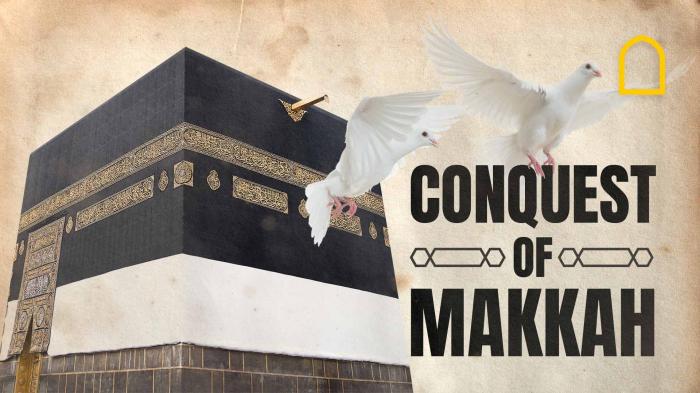Introduction:
At Umrah International, we are committed to enhancing your spiritual journey with comprehensive services tailored to your needs. Our mission is to facilitate your pilgrimage to the holy cities of Makkah and Medina, allowing you to immerse yourself in the profound spiritual experience of Umrah. In this exploration of the Conquest of Makkah, we uncover the historical significance of this pivotal event, its implications for the Muslim community, and the enduring lessons it holds for us today.
The Prelude to Conquest: A Volatile Landscape
The Unfolding Tensions: The Aftermath of Uhud
The Battle of Uhud marked a critical juncture for the early Muslim community. Despite suffering a setback, the Quraysh did not fully capitalize on their victory. However, the subsequent Battle of Mootah against the Byzantine Empire in 629 CE altered the balance of power. Many Muslims felt disheartened by their defeats, which the Quraysh interpreted as a sign of weakened resolve within the Muslim ranks.
The Breach of the Treaty: Hostilities Resurface
The Treaty of Hudaybiyya allowed Arab tribes to ally with either the Muslims or the Quraysh. This stipulation was initially intended to foster peace, but it set the stage for renewed conflict. The Banu Khuza’a allied with the Muslims, while the Banu Bakr sided with the Quraysh. Tensions simmered as the two tribes, long rivals, were forced into a temporary truce.
The Catalyst for Change: The Attack on Banu Khuza’a
A Night of Violence: The Surprise Assault
In Rajab of 629 CE, a brutal attack by the Banu Bakr on the Banu Khuza’a shattered the fragile peace. Despite seeking refuge in the sanctity of the Kaaba, several members of the Banu Khuza’a were killed. This violent incursion galvanized the Muslims and highlighted the Quraysh’s betrayal of the treaty.
Seeking Justice: The Prophet’s Call to Action
The Prophet Muhammad was deeply disturbed by the events and took swift action. He attempted to negotiate a peaceful resolution, sending a delegation to the Quraysh to seek justice for the Banu Khuza’a. His proposals included reparations for the victims or the renunciation of protection for the aggressors. However, the Quraysh’s refusal left no room for diplomacy.
Mobilization for Conquest: Gathering Strength
The Muslim Response: A Unified Front
Recognizing the urgency of the situation, the Prophet called upon the Muslims to mobilize for action. On the 10th of Ramadan, 630 CE, they began their march toward Makkah, driven by a shared sense of purpose and the desire to restore justice. News of their advance spread rapidly, heightening tension within the Quraysh.
Strategic Planning: Secrecy and Deception
To maintain the element of surprise, the Prophet implemented a carefully crafted strategy. All routes to Makkah were monitored to prevent information leaks. Despite a traitorous attempt by Hateb to inform the Quraysh of the Muslim plans, the Prophet’s loyal followers intercepted the message, showcasing their commitment and vigilance.
The Historic Entry: Makkah Awaits
The Arrival: A City on the Brink
On the 20th of Ramadan, 630 CE, the Muslim army reached the outskirts of Makkah. The sight of thousands of disciplined soldiers marching in unison sent ripples of fear through the city. Despite the overwhelming strength of the Muslim forces, the Prophet entered Makkah with a spirit of humility and purpose, reciting verses of the Qur’an that celebrated divine victory.
The Demolition of Idolatry: A Symbolic Act
Upon entering the Kaaba, the Prophet confronted the idols that had defiled the sanctuary. With each idol he destroyed, he affirmed the supremacy of monotheism. This act of purification was not only a physical cleansing but also a powerful statement against polytheism, reinforcing the message of Islam.
The Aftermath: Forgiveness and Reconciliation
The Transformation of Abu Sufyan
In a remarkable turn of events, Abu Sufyan, a prominent Quraysh leader, sought asylum among the Muslims. The Prophet welcomed him, inviting him to embrace Islam. This moment exemplified the potential for redemption and reconciliation, illustrating how former adversaries could unite under a common faith.
Establishing Peace: A New Order
After the conquest, the Prophet established a climate of safety and forgiveness within Makkah. He declared that anyone seeking refuge in the Kaaba or their homes would be safe from harm. This decree was instrumental in preventing bloodshed and fostering goodwill among the city’s inhabitants.
Reflecting on the Conquest: Lessons for Modern Times
The Power of Patience and Strategy
The Conquest of Makkah underscores the significance of patience and strategic thinking in leadership. The Prophet’s approach prioritized dialogue over conflict, showcasing the importance of diplomacy in resolving disputes. This lesson remains relevant in today’s complex geopolitical landscape.
A Model for Conflict Resolution
The principles of justice, forgiveness, and reconciliation demonstrated during the conquest serve as a valuable framework for addressing contemporary conflicts. The Prophet’s commitment to upholding agreements and seeking peaceful resolutions is a timeless reminder of the potential for harmony.
Conclusion:
At Umrah International, we draw inspiration from the enduring legacy of the Conquest of Makkah. Our commitment to facilitating your spiritual journey is rooted in the values of unity, compassion, and faith. As you embark on your pilgrimage, may you carry forward the lessons of forgiveness and resilience that have shaped the Muslim community for centuries. Join us in honoring this rich heritage and experience the profound spiritual connection that awaits you in the holy cities of Makkah and Medina.
















